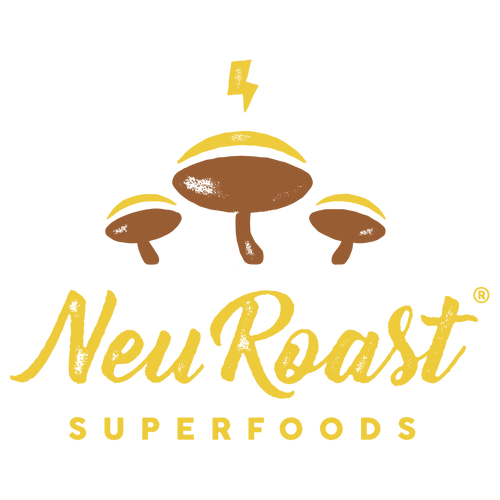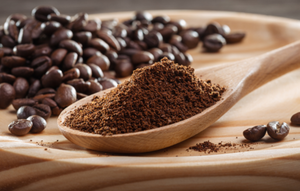Coffee is coffee is coffee, right? Not so much (if only it were that simple!). These days, as consumers become more conscious of what they’re putting into their bodies, where it came from, and how it was produced, companies have upped their game with full transparency into responsible, sustainable sourcing practices. The only problem? When it comes to coffee, there’s so. many. terms. splashed onto packaging and on websites. How is one to know what to look for? Is fair trade more responsible than small batch? What the heck does artisanal even mean? What about single origin?
Below, we break down the eight most common terms to look out for.
1. Fair Trade
When marked “fair trade,” it means that the coffee beans were purchased according to strict standards that encourage environmental sustainability and the equitable treatment and compensation of people involved in the production. Certification is officially granted by Fair Trade USA, whose seal of approval applies not only to coffee, but also things such as chocolate and sugar.
2. Small Batch
Although there’s no official definition of “small batch,” it generally refers to coffee roasted in batches up to 50 pounds — although keep in mind that it can also refer to a small batch (i.e. 100 pounds) roasted in a large-capacity roaster (i.e. 200 pounds). Both can be qualified as “small batch” since the term refers not only to the size of the batch in and of itself, but also the size of the batch in relation to the roasting cylinder’s max capacity. (Source)
Why opt for small batch? It ultimately boils down to transparency. If you want to know where your beans are sourced from, how they were roasted, and what nuanced flavor profiles to expect, you’ll have a better chance of finding out with a small-batch brew (you may even know the growers by name!). Plus, when producers brew this way, they have more opportunity to experiment with roasting techniques for optimal flavor.
3-4. Single Origin vs Blend
When you see coffee marked as “single origin,” it means no blending occurred. The coffee came from a single origin, in a single region, from a single crop. The benefits here are that you can appreciate the unique flavor profiles of the region in question. Take Kenyan coffee, for example, which boasts a distinctly fruity flavor. Single-origin coffee would preserve this. Blends would not.
Note: This doesn’t mean everyone should discount blends. In fact, for some, single-origin carries an overpowering flavor profile — especially since it’s recommended to savor single-origin without any add-ons (milk, sugar, etc). If you’re someone that enjoys milk-based lattes and cappuccinos, blends (which refer to at least two different origin coffee beans mixed together) may very well be the better choice for you. (Source)
5. Artisanal
Like “small batch,” there’s no official definition of “artisanal” in the coffee world.
For some, it refers to the “old way of doing things.” Think less regulation, less automation, and, thus, less repeatability. (Source) For others, it’s all about the sourcing of single-origin beans that carry unique flavors and, more often than not, a higher-than-average price tag. (Source) And then there’s those who apply the term “artisan” to the entire coffee production process, from sustainable farming practices to rigorous milling and drying of hand-picked beans at origin, to careful crafting into a finished form by the roaster. (Source)
Here at NeuRoast, we use the term artisanal to emphasize the fact that our coffee beans are roasted by a small team of expert roasters that use small batch-sourced beans and closely monitor the roasting process to ensure we get the freshest, best tasting coffee possible
6. Specialty
The term, which was coined by Erna Knutsen of Knutsen Coffee Ltd in 1978, has stood the test of time as a way to distinguish beans produced in special geographic microclimates that lend unique flavor profiles to the coffee. When a product is marked as “specialty coffee,” you can expect a higher quality raw material that, according to the Specialty Coffee Association of America (SCAA), is “well prepared, freshly roasted, and properly brewed.” (Source)
7. Non-GMO
GMOs are foods whose DNA has been altered in a laboratory through genetic engineering to take on specific characteristics and profiles. When coffee is marked as non-GMO, it certifies that it is free of such genetically modified ingredients, which critics worry may affect the food’s nutritional value (although no long-standing studies have been conducted). (Source)
8. Swiss Water Process
Traditionally, coffee is decaffeinated by soaking the beans in a chemical solvent - usually methylene chloride or ethyl acetate. Recently, a chemical-free method for decaffeinating coffee has emerged, called Swiss Water Process. Coffee beans are soaked in warm water - just warm enough to extract 99.99% of the caffeine from the coffee beans without sacrificing the flavor. At NeuRoast, we utilize this Swiss Water Process to ensure our Decaf Ground Mushroom Coffee is delicious and clean as a whistle.
Interested in learning more? Read up on the key differences between instant coffee and brewed mushroom coffee.

